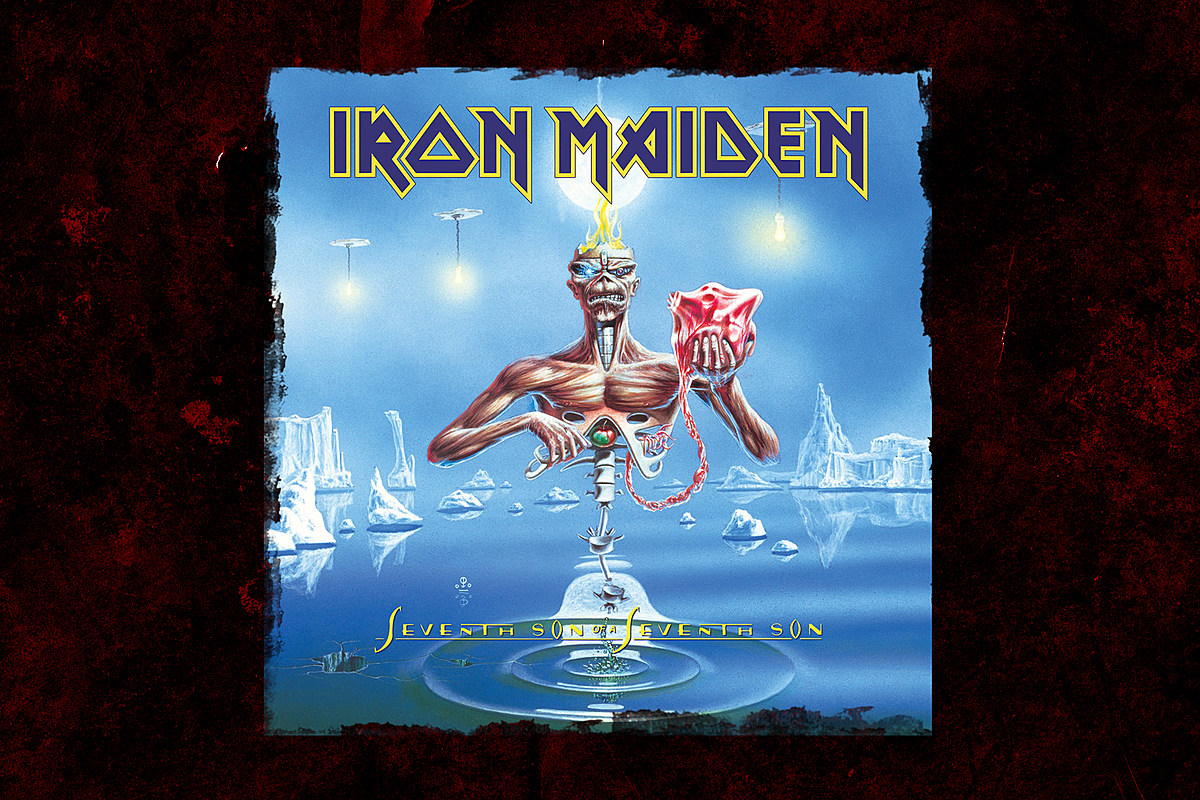
Happy anniversary to Iron Maiden’s Seventh Son of a Seventh Son.
After a series of albums mostly rooted in the straightforward, fist-to-the-sky aesthetics of the New Wave of British Heavy Metal, Iron Maiden took some major liberties with their seventh album, Seventh Son of a Seventh Son, which was released April 11, 1988. Not only was it Maiden’s first fully fleshed-out concept album, it was the band’s first to feature keyboards and it contained their most musically progressive songs to date.
Seventh Son of a Seventh Son certainly wasn’t without precedent. The band had used synth guitars on 1986’s Somewhere in Time, while1984’s Powerslave included the multifaceted 13-plus minute “Rime of the Ancient Mariner,” a lengthy retelling of the titular epic poem by Samuel Taylor Coleridge.
But with Seventh Son of a Seventh Son, Iron Maiden threw caution to the wind and attempted to write an entire album based around the folklore concept about the magical powers held by the seventh son born to a seventh son in a family in which no females were birthed between male children. Bassist and vocalist Steve Harris came up with the idea after reading Seventh Son, an award-winning historical fantasy novel by Orson Scott Card.
Orson Scott Card’s Seventh Son
Tor Books
In addition to being Maiden’s first effort at creation a concept album, it marked the first time Harris asked vocalist Bruce Dickinson to take an active role in co-writing the lyrics. The two worked with themes about fortune telling, insanity, prophetic dreams the occult and fate to tell the story of a character gifted with clairvoyance who is ultimately doomed by his own power.
READ MORE: Seven Super Nerdy Things We Love About Iron Maiden’s ‘Seventh Son of a Seventh Son’
Moreover, Seventh Son of a Seventh Son features more time signature shifts, rhythmic variation and elongated acoustic parts than Maiden’s previous efforts. This left some fans complaining that the album sounded too much like Yes or King Crimson. Five of the eight songs on the album were musical collaborations between band members, which explains the multifaceted nature of the material.
Iron Maiden, “Can I Play With Madness” Music Video
Seventh Son of a Seventh Son debuted at No. 1 on the U.K. album charts, making it the band’s first top-charting disc since Number of the Beast. In the U.S., the record peaked at No. 12.
The album was accompanied by a successful world tour, but more significantly it foreshadowed the progressive turn Maiden would take in 2000 with Brave New World after Dickinson returned to the band (following a seven-year absence). It was also Smith’s last album with Maiden at the time; he left the group in 1990 unhappy with the band’s musical direction. He, too, returned for Brave New World.
Loudwire contributor Jon Wiederhorn is the author of Raising Hell: Backstage Tales From the Lives of Metal Legends, co-author of Louder Than Hell: The Definitive Oral History of Metal, as well as the co-author of Scott Ian’s autobiography, I’m the Man: The Story of That Guy From Anthrax, and Al Jourgensen’s autobiography, Ministry: The Lost Gospels According to Al Jourgensen and the Agnostic Front book My Riot! Grit, Guts and Glory.
How Many Songs Each Iron Maiden Member Has Written
Here’s a breakdown of Iron Maiden’s song-writing credits.
Gallery Credit: Joe DiVita


 61
61